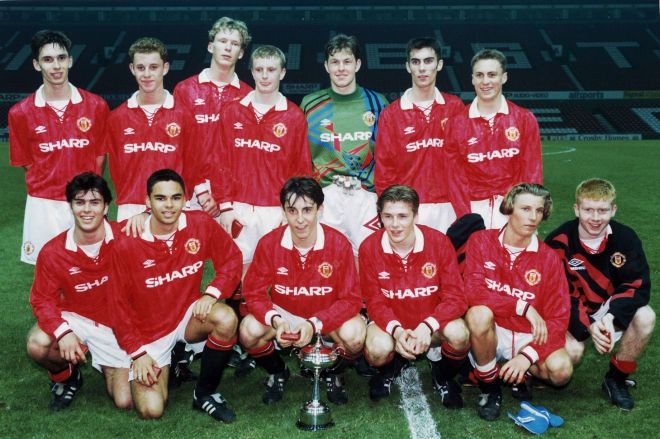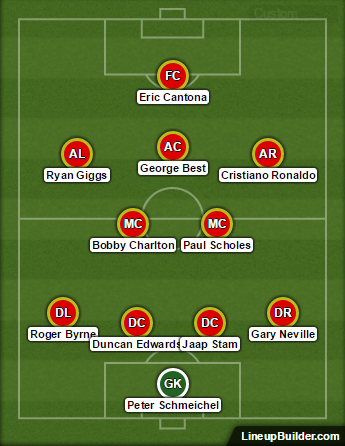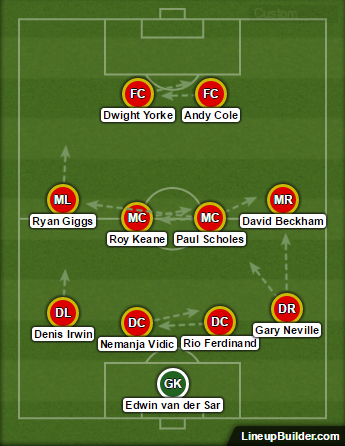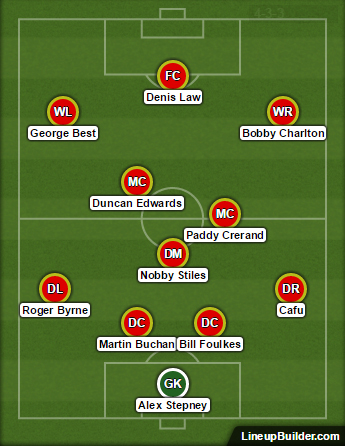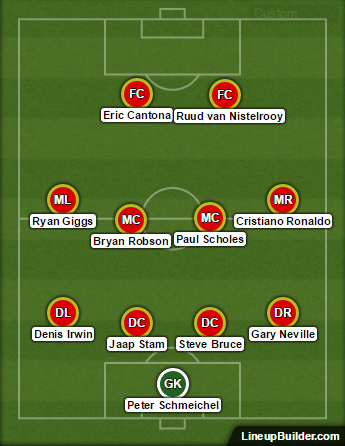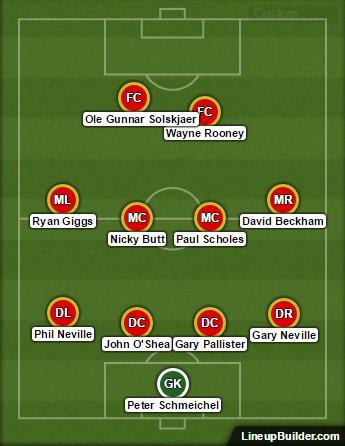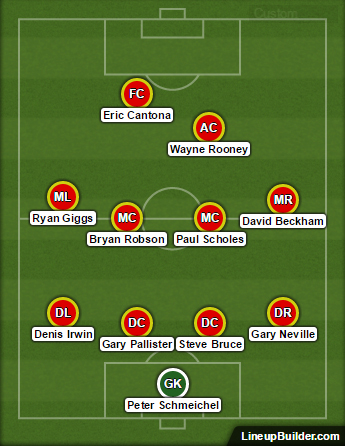There’s a Turkish club whose name doesn’t come up very often, except in Champions League qualifying draws. Galatasaray don’t exactly make for famous opponents. But one night in 1994, a Manchester United-Galatasaray game set the tone of the Red Devils for the next twenty years.
Ryan Giggs by then had established himself as a first-team member, but it was the rest of the teenagers who burst onto the scene that night. Watch the grainy video footage on youtube. Beckham, Gary Neville and Nicky Butt played the whole match, each of them only nineteen. Paul Scholes graced the bench. The game was but a taster of the magic, eleven premier league titles and two champions league titles that were to come.
In the excellent Class of 92, Gary Neville is sceptical that history will repeat itself. Truth be told, the statistics today do not spell good things for youth systems in England. United’s famous class each made more than 10 appearances in the treble-winning season of ’99; the average number of under-23s in squads nowadays are 2.5. Clubs like United are supposedly ‘abandoning their youth systems’; clubs like Manchester City never really had them in the first place. The opportunities for academy talent look increasingly limited as clubs instead go in search of famous names, too impatient to grow their own.
Is it all gloom and doom, however? I do think that youth still has a chance, despite whatever Arsene Wenger and Jose Mourinho have been saying lately. I’m writing from a Manchester United point of view since that’s what I’m most familiar with, but it’s easy to see that this club, and probably all other clubs in England, are not giving up on young players just yet.
First of all, as is with everything in English football, I think that the problem is exaggerated. Be it by newspapers, managers, or whoever else there is who has a say on these things, it’s not like youth football is on the road to a complete stop. Just look at the pre-season squad that United fielded in the States. Seven of eleven players who finished the first three games were academy players. And that third game was a 3-1 defeat of Barcelona, with the youngsters scoring two goals. That doesn’t sound like a club giving up on its youth principles. Although Paddy McNair and Tyler Blackett were brought in to cover the ravaging injuries that plagued United throughout last season, they continued to rack up games in front of more senior defenders. Hopefully the trend of introducing youngsters will continue well into the future. Players coming into the team at different points in time doesn’t mean that players aren’t coming in at all.
Secondly, so many caveats of what being a youth player means are forgotten. Maybe Luke Shaw was bought from Southampton, but he’s still only nineteen, and I’d still consider him one of our young talents. Buying all of these players means that these players still have to come from somewhere, and Southampton is the glowing frontman of the academies of England – what England needs to do is make sure that it does not become the exception. Also, I think players are written off far too quickly. While Januzaj didn’t play as much under van Gaal, he still managed 21 appearances, and let’s not forget his stellar showing under Moyes. People forget he’s only twenty and has a long way to go and play. David Beckham, after all, had a loan spell with Preston North End before he established himself as United’s first choice.
The fairy tale of the Class of ’92 in this way has affected how youth is viewed in the premier league – people forget the hard truths, the Aston Villa defeat, the reality of ‘you can’t win anything with kids’, and how these things take time to happen. They expect results instantly, and from there draw false conclusions. No one knew Ryan Wilson was going to be such a phenomenal superstar until it happened, and likewise, you can’t tell what the future is going to be for some of these young players. Paul Scholes turned professional in 1993 and didn’t get his first game until 1994. Is Sir Alex Ferguson going to be criticised for abandoning youth by not playing him sooner? Not really, no. Because Sir Alex trusted in and believed in them, biding his time till he thought they were ready and allowing them to grow into the role. That’s the difference with football then and now, and that’s why it looks like academy players aren’t trusted anymore. Teenagers are treated as superstars and everyone is expected to do amazingly overnight. And if you think like that, expecting the result before the effort, then of course you’re not going to see what you want to see.
Youth is not dying. Getting harder to define and smaller in reach, perhaps. And it’s true that we’ll probably never see a huge bunch of players coming into the first team of a big club ever again. But this doesn’t mean that big clubs aren’t introducing players, or even that smaller clubs aren’t overhauling their squads with younger, fresher faces. Look at United signing Sadiq El Fitouri from Salford City – that’s believing in youth, it’s just that deals such as this go under the radar given that they’re playing with U21s. Manchester City has invested in a major youth complex – that’s investing in youth, given that they use it properly.
And that’s the crux – the onus is on the teams to make use of what they have and bring players in not quickly, but eventually. There is plenty of talent out there to be found, even if it might not seem like it. No one knew, looking at that bunch of boys, that three would make club Captains, one national Captain, only the characters of the other two stopping them from doing so too. The most important thing is not to expect immediate results, but to keep looking. Who knows? There just might be another Ryan Giggs out there, waiting in the wings.
